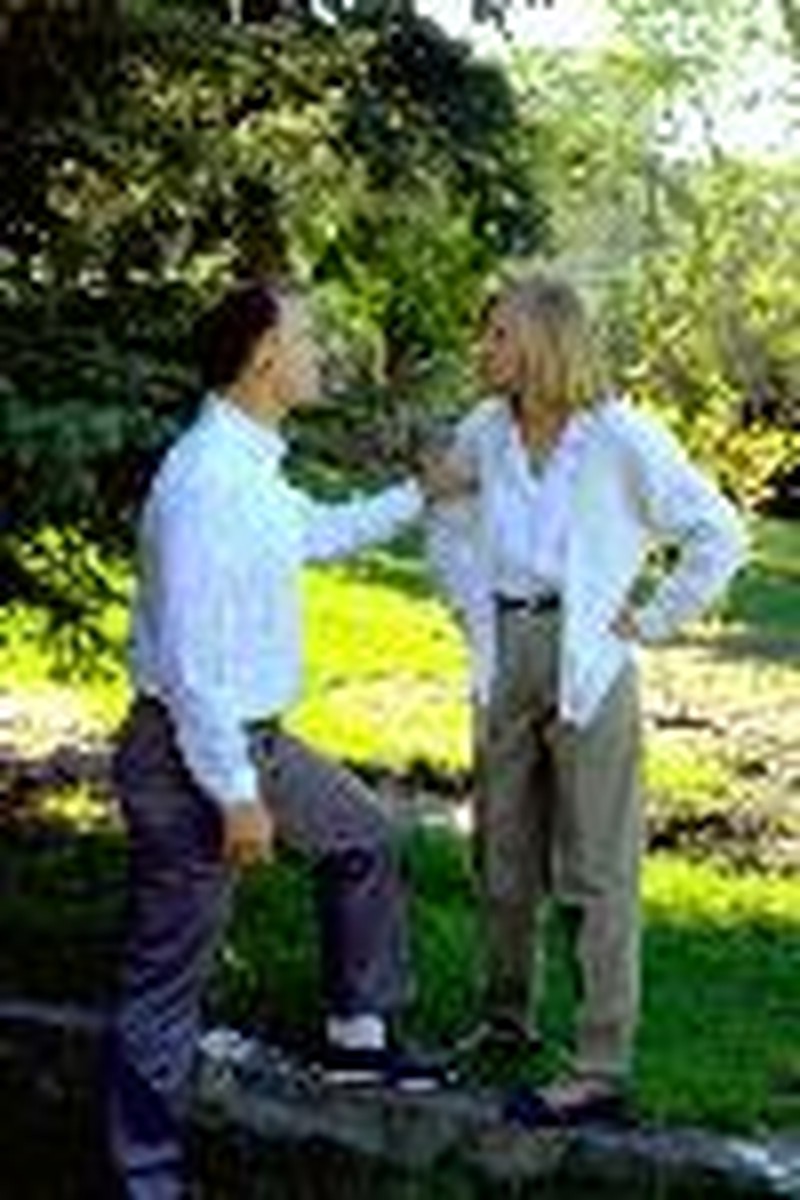You're Not Wrong, Just Different
- Jill Savage Hearts At Home
- Published Jan 13, 2005

When Mark and I started dating it was our differences that attracted us to one another. It only took about six months of marriage for those same differences to tick us off! In fact, many of us spend the duration of our marriages trying to change our spouses rather than valuing the ways God created him or her differently.
I certainly fall into that category. I fell in love with a dreamer -- a man with a vision. I married a man who rarely pays attention to detail. I fell in love with a coffee connoisseur. I married a man who leaves coffee spills all over the kitchen floor. Do you see how our perspectives change?
Ogden Nash once said, "Marriage is the alliance of two people, one of whom never remembers birthdays and the other never forgets them." Often this is the crux of our marriage frustrations: differing priorities. We are truly different from each other and if we don't allow our differences to complement one another, they'll rip us apart.
When Mark and I found ourselves in marriage counseling after hitting rock bottom, we began a new marriage "internship". We really didn't understand marriage and we certainly didn't understand one another. During that phase of restoration, I began repeating the phrase, "He's not wrong, he's just different," many times throughout the day. Mark swears he often heard me saying it under my breath with clenched teeth. But the truth is, this shifted my thinking. I let go of pride and judgment. And I realized there is more than one way to process decisions, express love, and meet someone else's needs.
Dave Meurer, author of Daze of Our Wives puts it this way, "God has made each one of us to be unique. A great marriage is not when the 'perfect couple' comes together. It is when an imperfect couple learns to enjoy their differences."
We are imperfect and we do need to learn to enjoy our differences. But first, we have to understand how God has created us differently.
Temperaments
In marriage, we usually find one person who is more of an extrovert and one who is more introverted. We usually find one who is passive and one who is more aggressive. We find one who is a thinker and one who is a feeler. None of these distinctions are right or wrong -- they are simply different.
In our home, Mark is the feeler and I am the thinker. I know that in many marriages the wife takes the role of the feeler and the husband plays the thinker. So much for generalities! There are always exceptions to the rules. When Mark and I are faced with a decision, I'm the one looking for the facts and the details. He's processing it based upon how he feels.
Each of us needs to value the way God wired us, differences included. Sometimes facts are needed to make a good decision or to sort out a situation. In those times, Mark has learned to trust my investigative tendencies. At other times, Mark may sense the deeper levels of a situation. When that happens, I have learned to trust his intuitions rather than discount them simply because they lack facts. He and I are made differently, yet our differences -- used together -- actually make us stronger.
You and I have to stop fighting our spouse's differences and begin to celebrate them! We find joy in our relationship when we can truly say, "Thank you God for giving me a husband/wife who has strengths that make my life richer!"
Love Languages
In the beginning of our marriage Mark would sometimes stop at the floral shop and buy a bouquet of flowers for me. It was a thoughtful gesture. However, I always felt like it was a waste of our hard-earned money. I didn't want him to buy me things; I just wanted him to spend time with me!
Similarly, on Mark's birthday I would take the day off to be fully available to him. Yet, he felt disappointed when I didn't give him a purchased birthday gift.
Our problem: Mark and I were speaking different languages to each other. He was speaking "Gift-giving" to me. I was speaking "Quality Time" to him. We were both speaking the language we knew, but not the language the other person would understand as an expression of love.
A friend introduced us to Gary Chapman's book The Five Languages of Love and for the first time we began to understand how God made us differently. Even the way we give and receive love is different!
His Needs, Her Needs
He wants sex, she desires affection. He wants affirmation, she wants communication. He desires support from home while she wants a commitment to family. From the beginning of time, men and women have been frustrated in their attempts to have their respective needs met. God says, "the two shall become as one" (Ephesians 5:31b), but how do we make that happen?
Each of us has an emotional bank of sorts. When needs are met and love is spoken, deposits are made. When those are absent, or criticism and harsh judgment is spoken, withdrawals are made from the bank. Our goal is to make more deposits than withdrawals.
Another book that had a profound effect on our marriage is His Needs, Her Needs by Willard Harvey. Mark and I had been fighting our gender-based differences when we needed to be embracing them. As we better understood the differences in how God created us, we began to explore each other's world, and for the first time, we experienced moments of oneness in our marriage. Over time, we saw an increase in our love bank deposits and a decrease in our withdrawals.
We Are So Different, Yet We Are The Same
In your attempt to build a bridge between your two worlds, remember that the gap is not as big as it looks. As individuals, we are unique. As men and women, we find typical gender differences. Yet, as human beings, we all have the same basic needs: to be loved, accepted, and valued.
You and I make choices everyday. We can choose to love or not to love. We can choose selfishness or selflessness. We can choose to step into our spouse's world or stay isolated in our own. When we make choices that equal deposits in our marriage love bank, it is an investment that is sure to pay high relational dividends.
Jill Savage (www.jillsavage.org) and her husband Mark have been married 21 years. They live in Central Illinois with their five children ranging in ages 8-20. Jill leads Hearts at Home (www.hearts-at-home.org), a ministry for moms, and is a sought after author and speaker. You might want to check out Jill's book on marriage, Is There Really Sex After Kids? available at a bookstore near you.




















